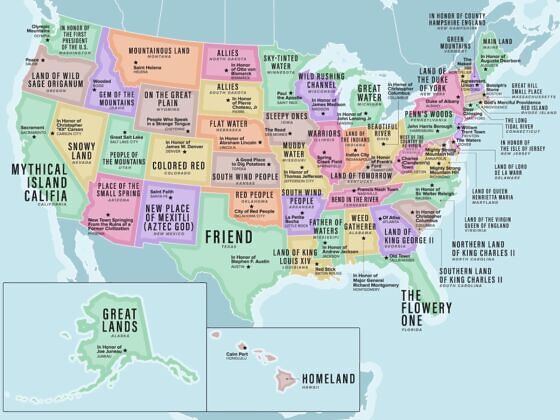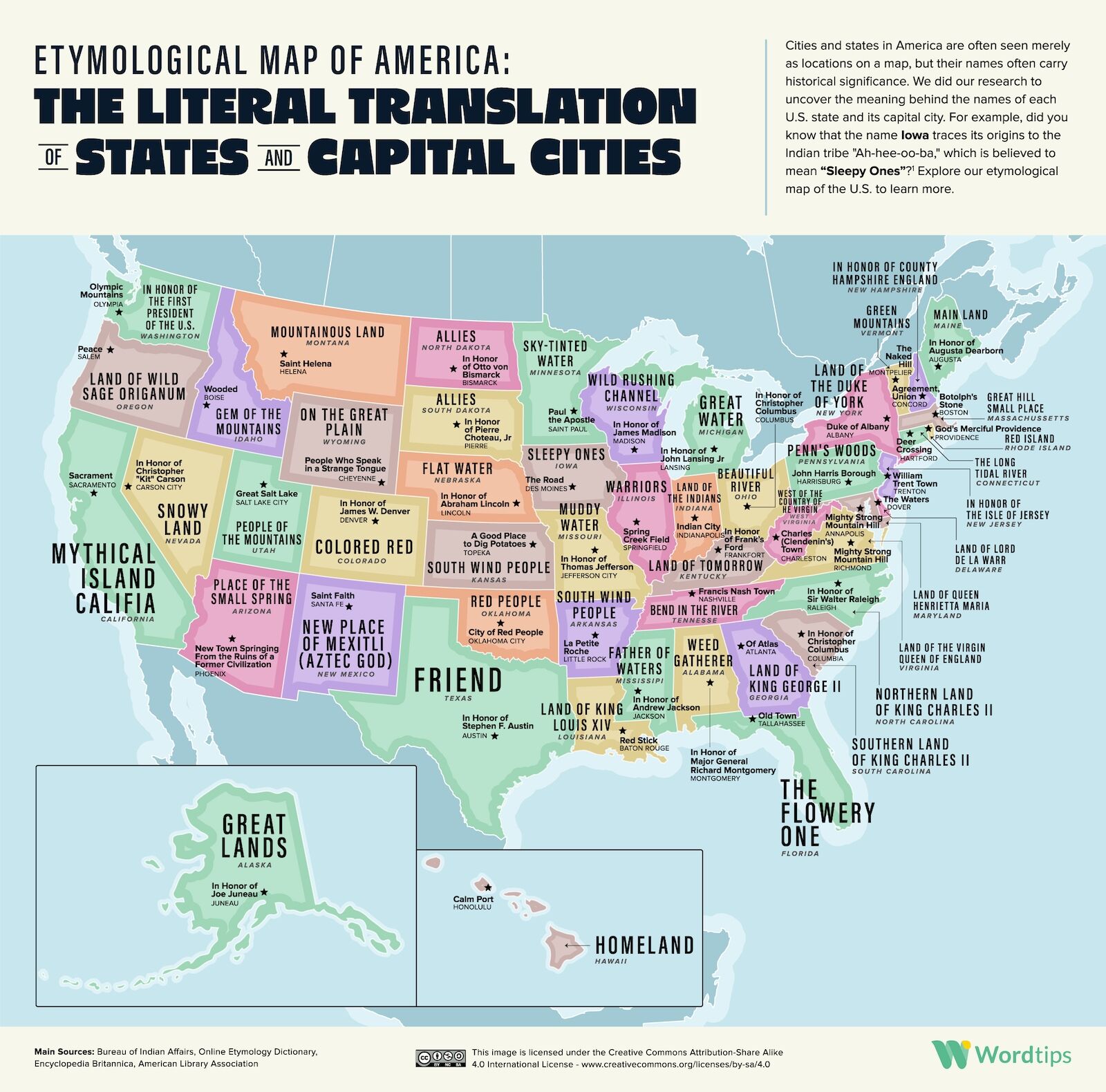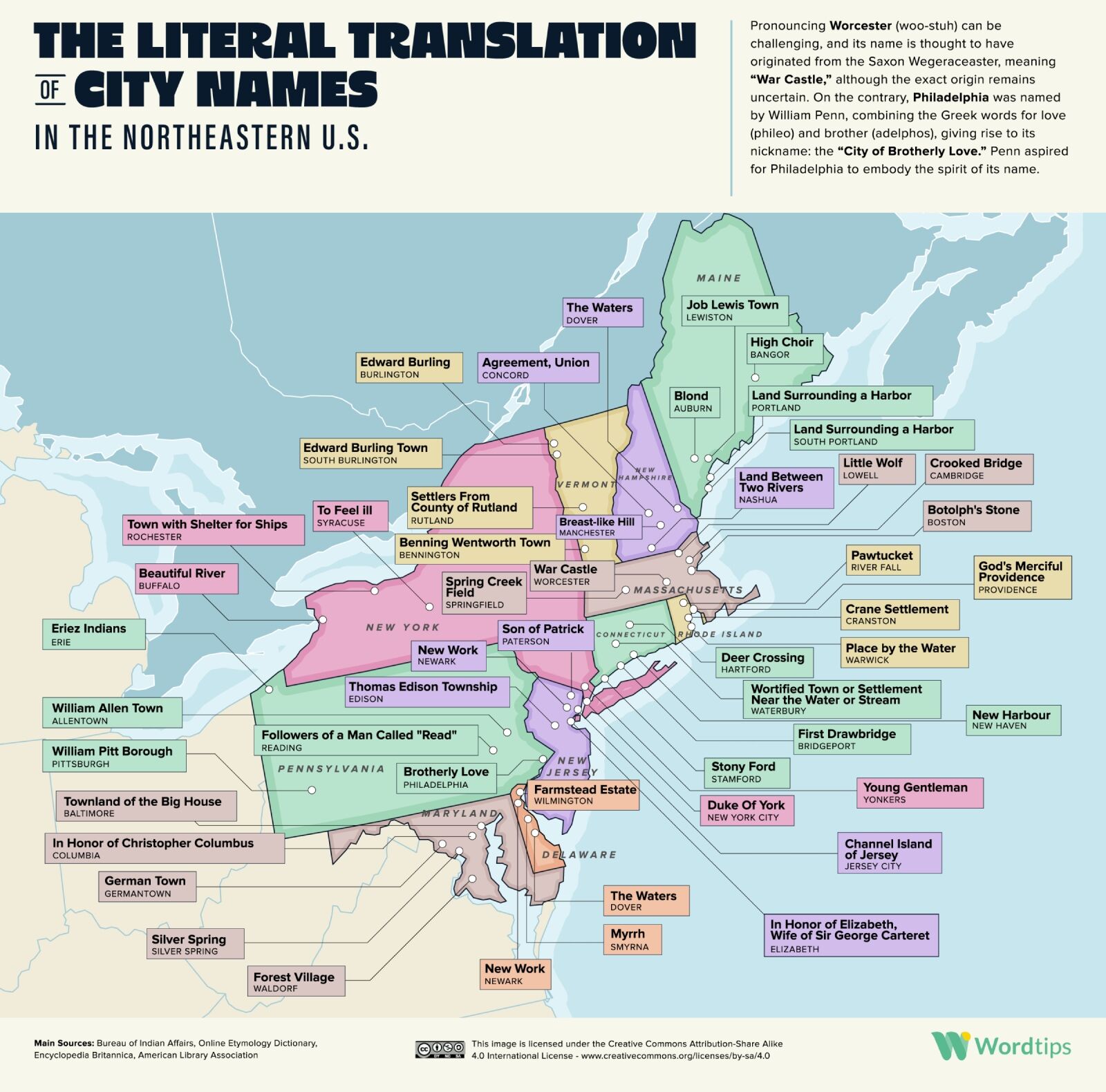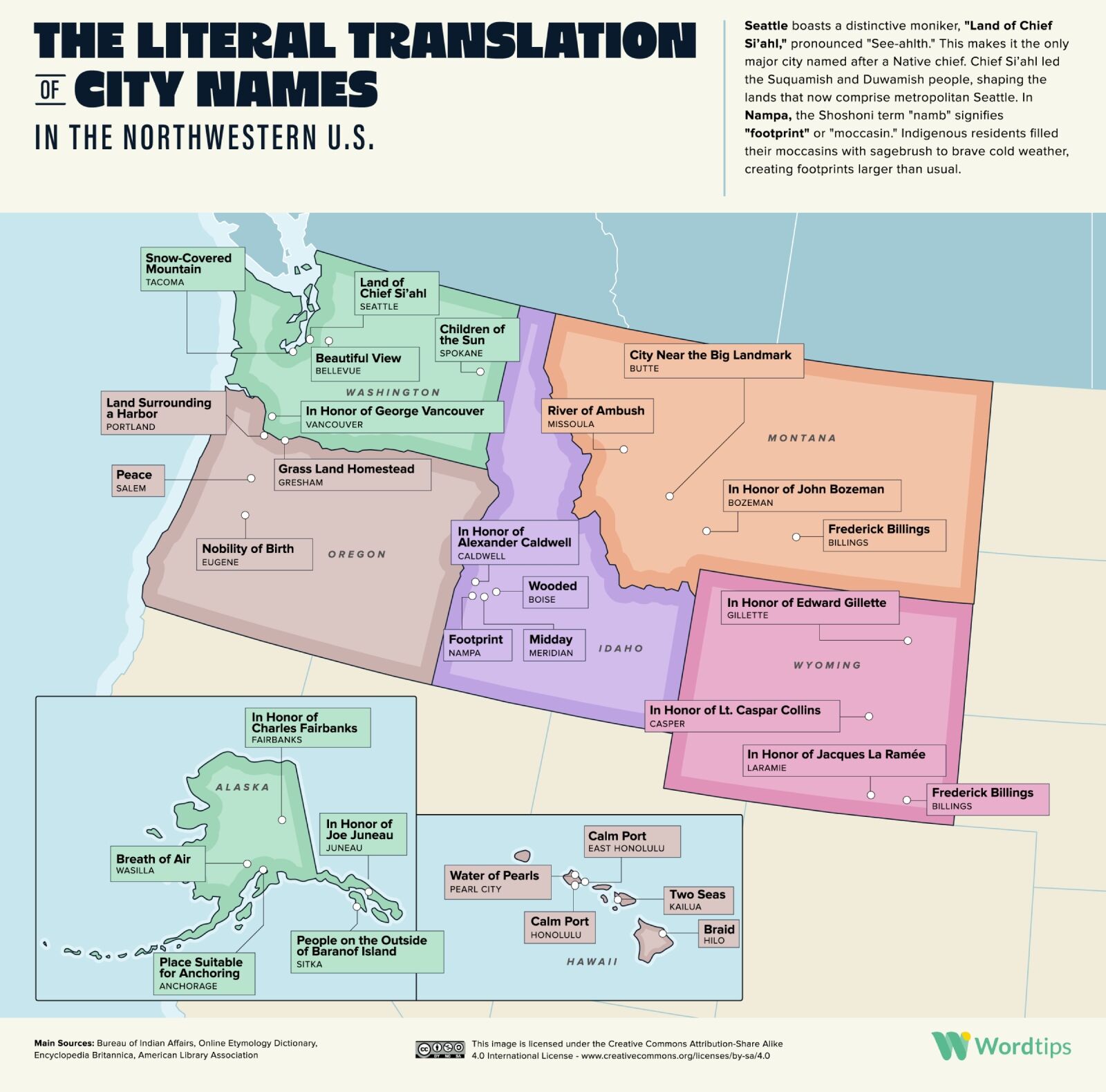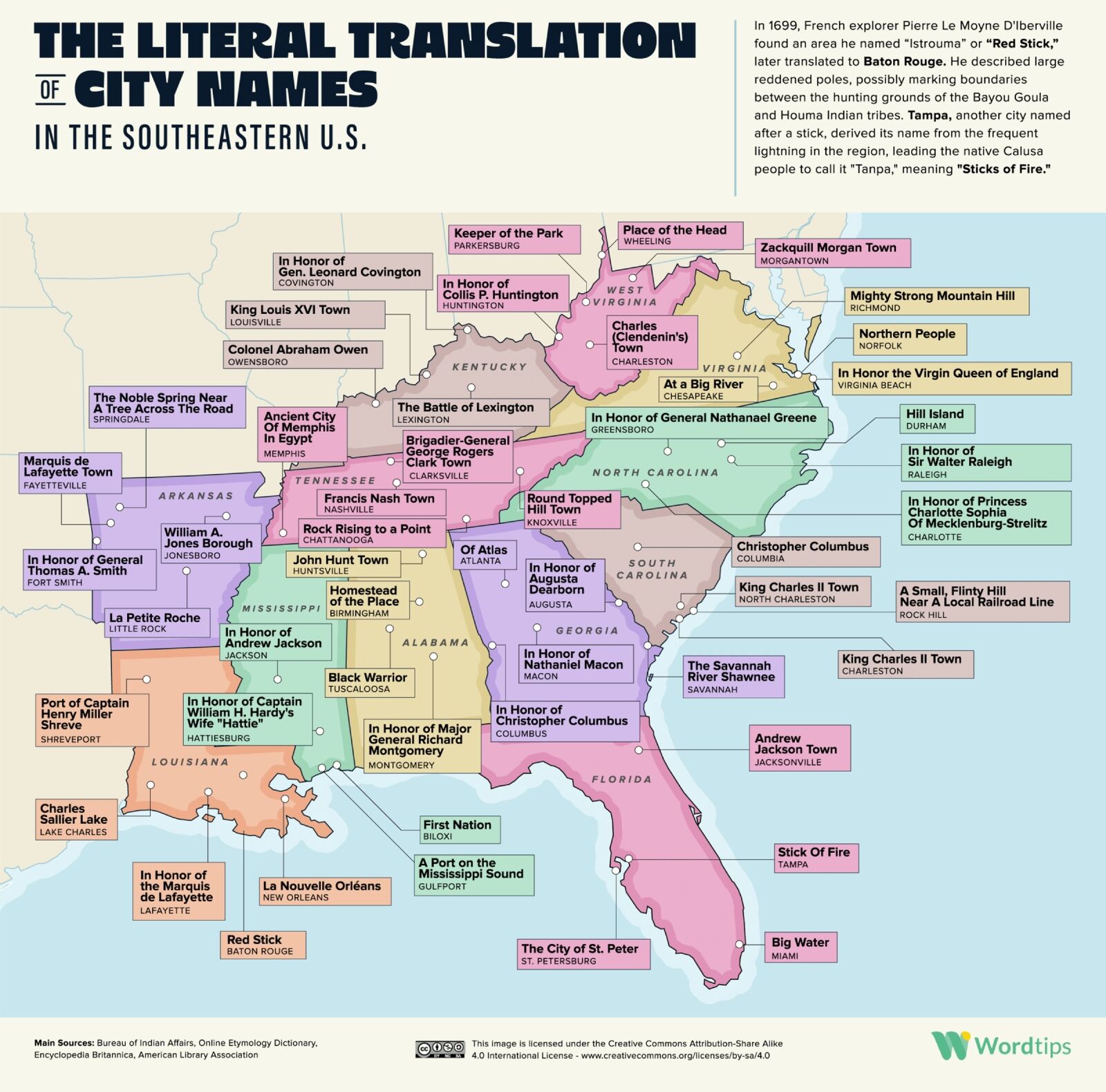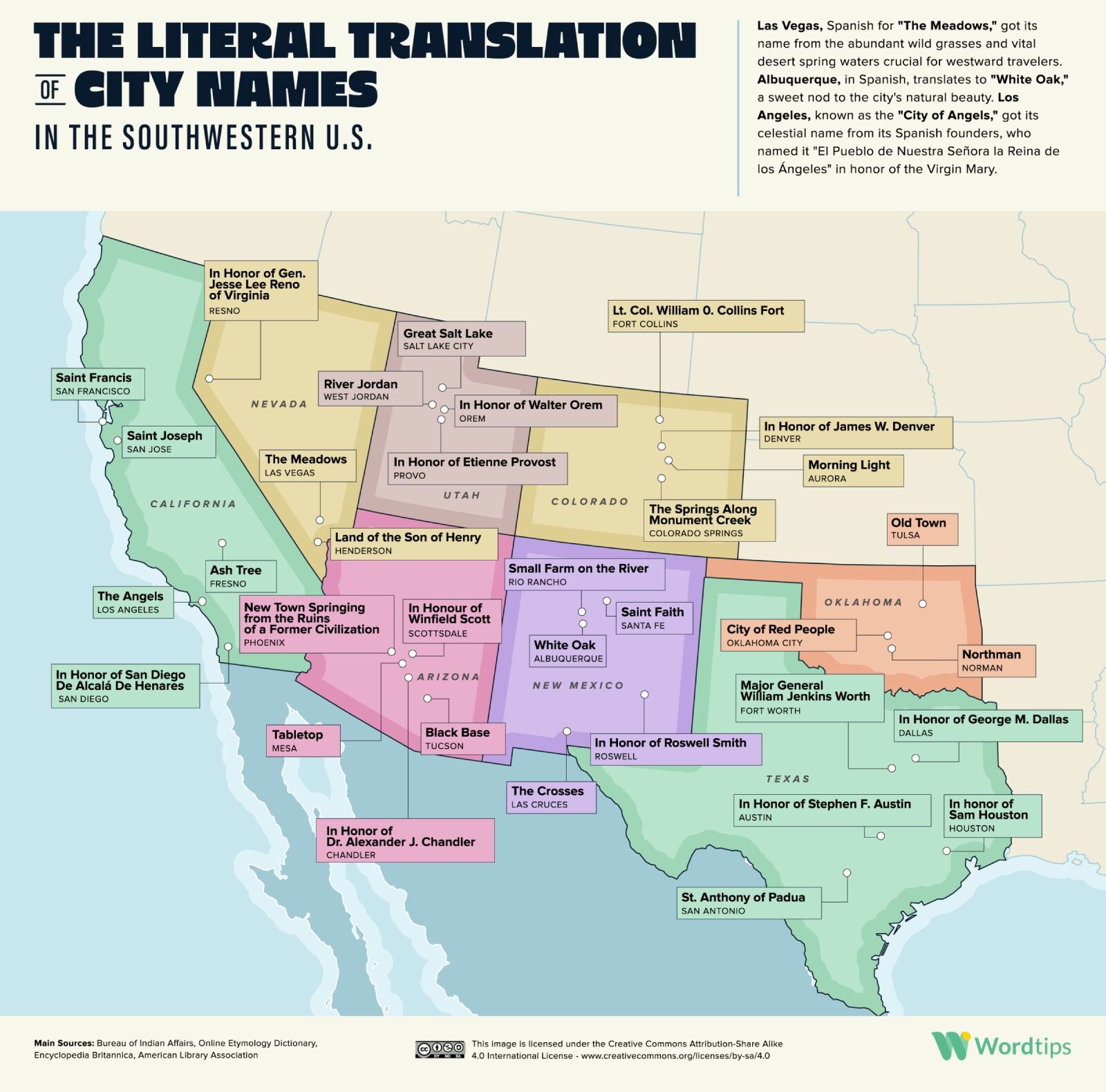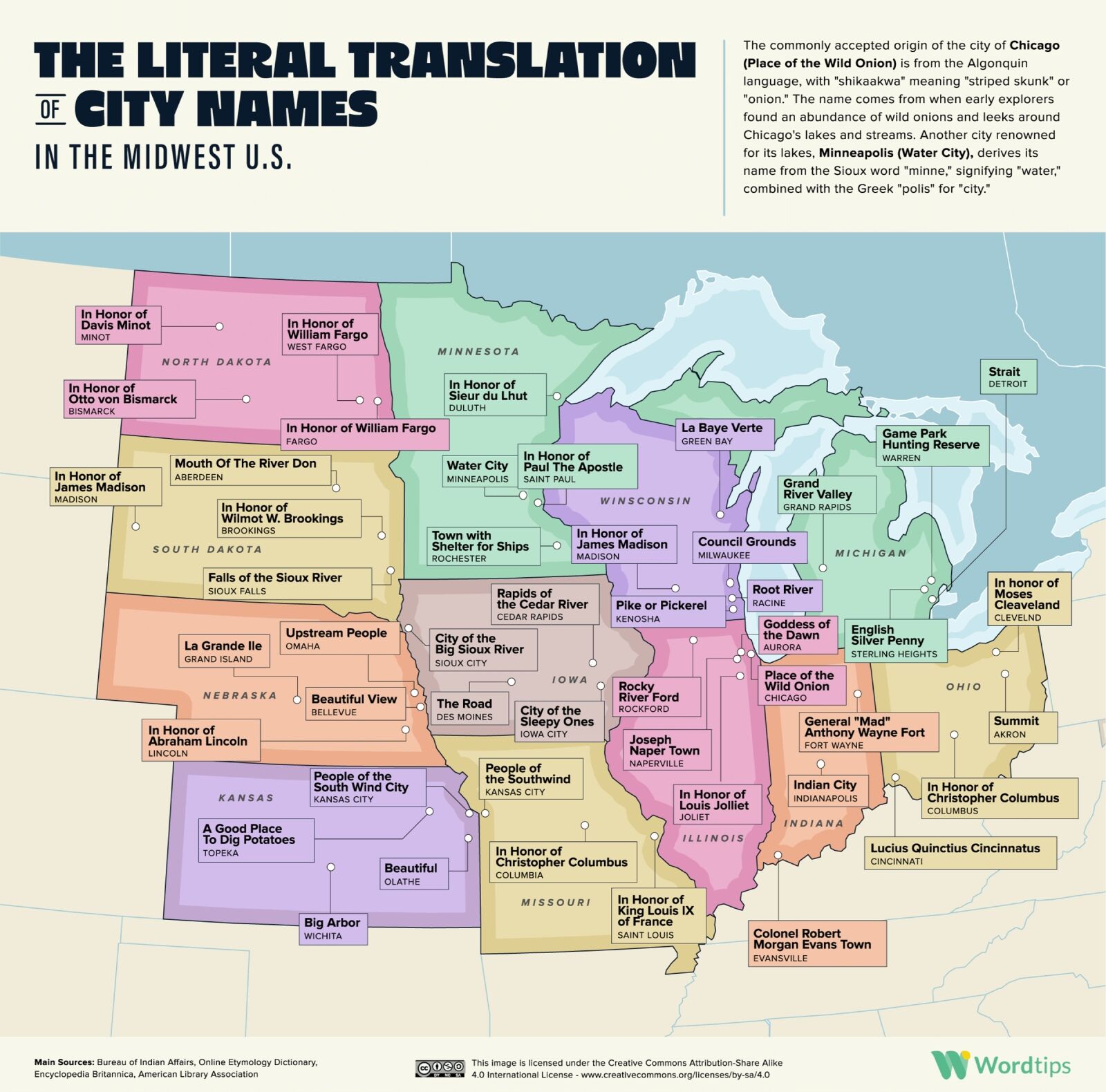Have you ever considered where the name of your state or city comes from? Every place in the US has a story behind its title, and the folks at WordTips have put together a selection of informative maps to help trivia and etymology nerds by listing the literal translation of state names and those of our major cities.
From Missoula (River of Ambush) in Montana and Manchester (Breast-like Hill) in New Hampshire, the origin of place titles across the US come from Indigenous languages, European settlers, and geographical features. To help you puzzle out a tricky crossword clue or score points in the next geography round at games night, here are the meanings behind the names of each US state, states capital and 178 of the biggest cities across the US.
